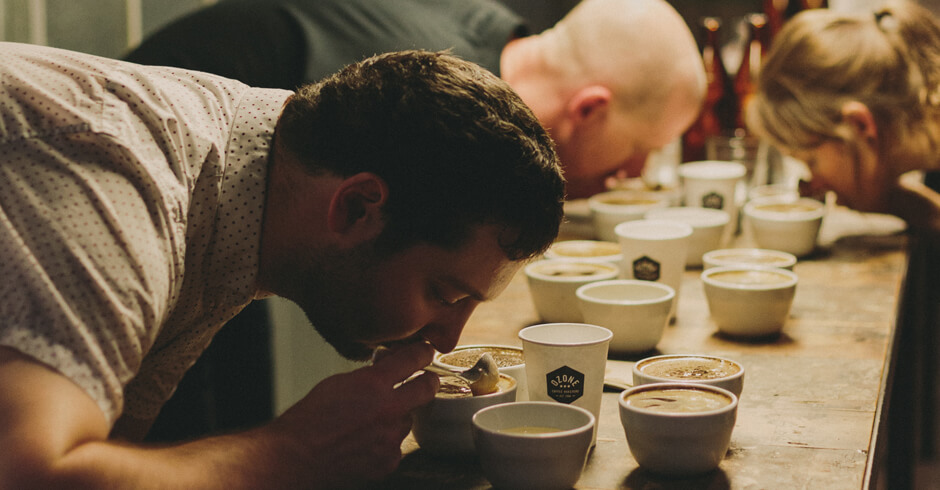
Misconceptions About Coffee
As one of the most popular beverages in the world, coffee has become a commodity that has been widely normalized in society.
Advocates of this drink often tout of the health benefits of adding a cup of coffee to your day through selective studies and research.
Coffee has become popular throughout the world because the effects are often felt immediately, giving the brain an extra burst of energy and a heightened sense of alertness. Coffee is also considered a ‘mild’ stimulant that has excellent anti-oxidant properties that are beneficial for the body.
All of the positive effects of coffee have been studied by many researchers over the years without much research looking into the damage that’s caused to the body over many years. This could because coffee drinkers may not have considered the long-term effects of daily coffee consumption.
There are many red flags regarding coffee that should classify the bean as a drug since there are negative effects that occur when attempting to stop consuming coffee for a short period of time.
Any substance that has negative consequences when removed from your life isn’t really a health product at all and could be causing more self-harm than you’ve been told.

How Coffee Makes You Old, Fat & Broke
To better understand how coffee has more negative aspects than positive, we first must take a look at what’s actually inside a cup of morning joe. Coffee is an imported product for many daily drinkers and comes from a wide range of sources.
After country of origin, coffee can categorized as either organic or non-organic. Organic coffee is grown on soil that is free of artificial chemicals and not sprayed with pesticides before harvest.
A majority of coffee that’s sold in cafés, coffeehouses, fast food franchises, and restaurants are usually of the non-organic type, which contain many of the agrochemicals that found in many other food products. This is because lower quality foods laden with chemicals are often cost much less than quality organic sourced food products.
One of these chemicals, acrylamide, a byproduct chemical that’s produced from roasting the coffee bean. When you ingest acrylamide in beverages like coffee, it becomes a toxin when heated above temperatures over 120ºC.
When the compound reaches the liver, it’s converted to AGEs (advanced glycated end-products) that bind to the liver and promote fat accumulation in the cells. The highest amounts AGEs are found in fried foods like potato chips, French fries, and also any burned foods like overdone toast.
Coffee keeps you fat because it also contains a high amount of AGE products. AGE is the perfect acronym for these compounds, as they’re also the prime reason behind premature aging in the body.
AGEs create inflammation and oxidative stress inside the cells and becomes worse as it accumulates in the body. This is why generally coffee drinkers and individuals with poorer diets tend to look much older than their actual age.

AGEs causes the body’s cells to create oxidative stress.
Coffee also keeps you fat due to the flight or fight response that’s created in the body’s hormonal system. Drinking coffee causes the adrenal glands on your kidneys to produce cortisol, a hormone that’s produced in response to stressors like eminent danger or to awaken you from a deep night’s sleep.
When cortisol is produced in high quantities, it stimulates the release of stored sugar for energy and causes blood glucose levels to rapidly rise in the bloodstream. High blood glucose levels are the precursor for diabetes and other chronic conditions, which can create difficulties managing your weight and body fat levels.
Financial Impact of Coffee
During the 2020 global pandemic that created dramatic changes across the world, the cost to ship products became much more expensive and reduced the supply of almost all consumer goods.
Simultaneously vast crop shortages were experienced from 2020-2022 in various areas due to harsher climate conditions, one of them including the largest producer of coffee, Brazil.
As a result, the supply of coffee to meet global demand is now at an all time low due to the smaller harvest and current high costs of shipping. This has increased the average cup of coffee by roughly $1.25.
Coffee farmers now have to resort to selling their remaining supply of coffee beans to wholesale distributors for cash, as the futures for coffee is tied directly to the U.S. dollar trade value. The incentive to sell off the remaining small harvest for cash already exists.
The coffee industry has notoriously razor thin profit margins and a weak harvest can devastate most of these farmers. This means the miniscule supply of coffee beans from the past year harvest will be even smaller during the upcoming years.
For the average coffee consumer, this will affect the price of purchasing high quality coffee beans similarly to the pressure motorists are experiencing with fluctuating gas prices across North America right now.
If you’re currently behind financially due to the effects of the pandemic from the past few years, an addiction to coffee may not be of your best interest right now.
The price of coffee is set to skyrocket in coming years and will probably come to a shock to most aficionados across the world. In 6-9 months keep track of the price of coffee futures market in comparison to the price of coffee from the local baristas and you’ll see what I’m talking about.
Investors are about to make huge profits from coffee stock market gains while the coffee consumers will slowly going broke. Better start doing some of your own research.
The Wrap Up
Coffee consumption is so commonplace that the average person doesn’t question whether there could be any negative effects on their health. What’s very obvious to most regular coffee drinkers (and non-coffee drinkers) is that the substance is very addictive and difficult to completely stop consuming regularly. This should raise alarms whether coffee has any true ‘health’ benefits and an individual should determine whether this beverage has any detrimental effects on their life physically, mentally, or financially.
What else do you want to know?
Struggling With Midlife Crisis: How to Find Inspiration and Creativity
The Deception Behind Nutrition Labels
Helping A Loved One Battling a Chronic Illness Problem

Leave a Reply
You must be logged in to post a comment.